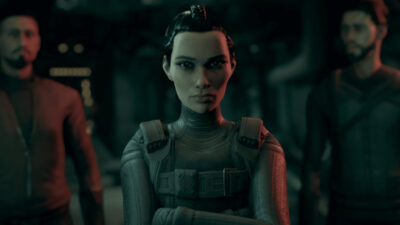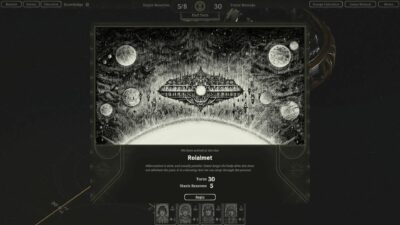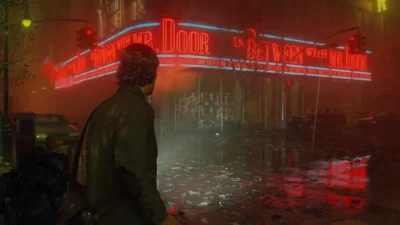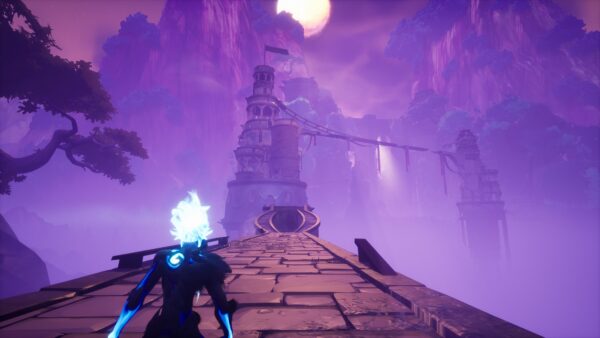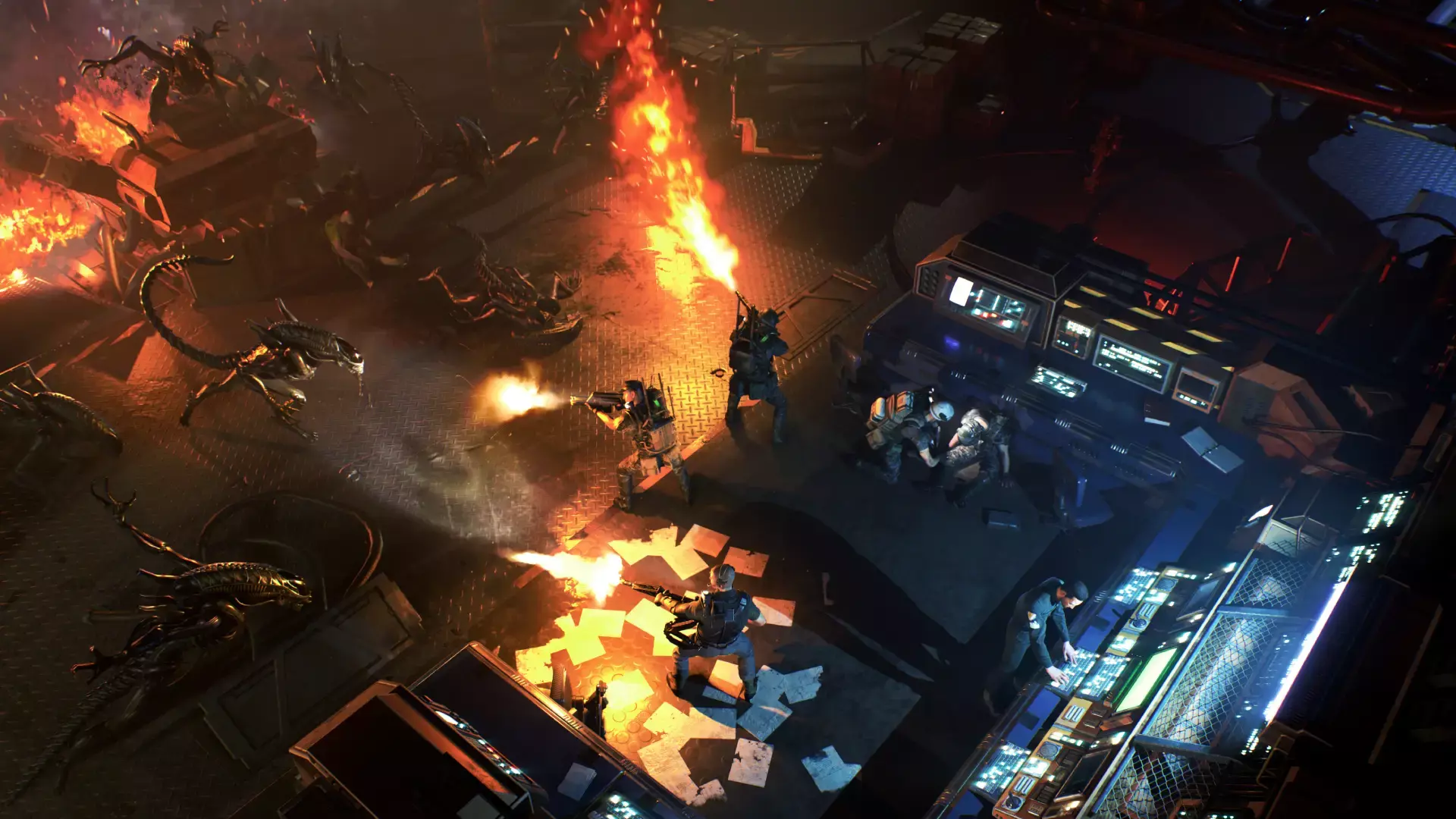
The Aliens universe gets a real-time strategy game courtesy of Tindalos Interactive. Here’s our review of Aliens: Dark Descent.
Let’s get my biggest criticism of Aliens: Dark Descent out of the way first, because maybe it’s a bit unfair and it also applies to literally any game that has tried to take on the Aliens franchise. Each film of the Alien trilogy (the three films that count) is about an institution happily serving up working-class people to be minced up in Alien chow, whether it’s a corporation (Alien), the prison industrial complex (Alien 3) or a corporation and the military (Aliens).
Aliens is, in effect, a Vietnam War movie, about troops being sent into an environment they aren’t prepared for, against an enemy they’re ill-equipped to fight, by authorities that don’t know what’s going on and also don’t care what happens to the grunts on the ground. It’s a film about a clueless officer class making dreadful decisions while soldiers die horribly one by one.
Although it was required reading on set, Aliens isn’t Starship Troopers (the book, not the devastatingly satirical movie adaptation). Aliens isn’t Warhammer 40k. It’s certainly not Halo. My point is, if you want to make a game about heroic space marines fighting off hordes of monstrous aliens, maybe you should pursue a different licence?
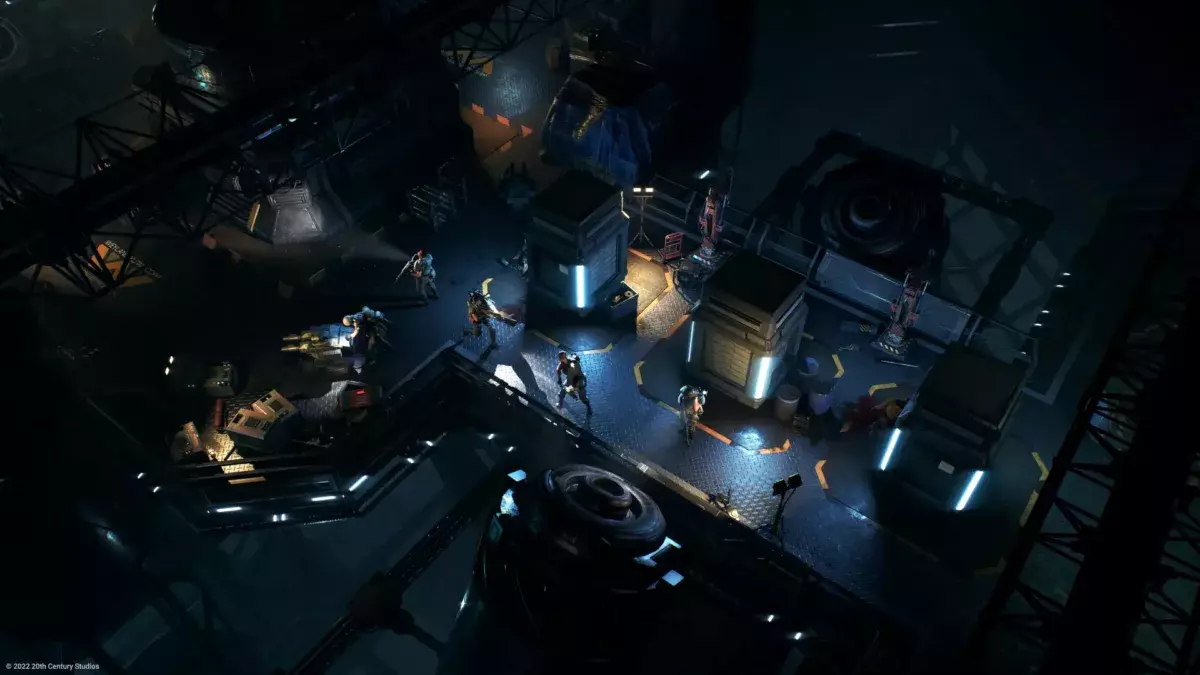
Credit: Tindalos Interactive/Focus Entertainment.
Bug hunt
Let’s try to put all that to one side, though, and look at the game itself. Dark Descent is a real-time, squad-based strategy game that bears an aesthetic resemblance to a popular science fiction movie franchise.
The main character, Maeko Hayes, is a Weyland-Yutani administrator, this game’s equivalent of Aliens’ Carter Burke, only this Weyland-Yutani rep is smart and competent, and here to save lives. The dialogue sounds like it’s from an in-universe propaganda movie released by Weyland-Yutani themselves. Yes, of course “the company” eventually turns out to be evil (you get to fight them later in the game), but in the Alien universe that shouldn’t come as a shocking twist to anyone with at least a passing interest in sci-fi.
You control a team of four marines, with a range of abilities, character flaws and traumas, and in-game you operate all four of them as one unit, occasionally using “command points” to instruct them to carry out actions such as laying down covering fire. Gameplay’s very point-and-click in a way that means that when you’re overwhelmed in combat it feels like a failure of the control interface rather than your own ability to take on the threat. Winning a combat encounter is usually done in advance, by laying down an effective shield of mines, sentry guns and suppressing fire, rather than through any application of skill or tactics once combat has begun.
The situation’s made trickier because Aliens: Dark Descent really takes its time to dole out its toys. This is partly because it’s an ambitious game; it eventually puts a lot of tools and mechanics at your disposal, but it takes so long to do so that it can feel like a sustained tutorial. It takes a frustratingly long time before you’re given enough options to allow you to strategise.
Your marines don’t just fight the titular Aliens (I’ll be long dead before I call them ‘xenomorphs’). You’ll also encounter Cultists – Alien-worshipping former dock workers who’ll come at you with tools and firearms. In the late game, Weyland-Yutani arrive and begin a clean-up operation, Black Mesa style. Then there are creepy cyborg Guardians, who feel a bit too much like Warhammer 40k’s Genestealer cultists for comfort. Each requires different (but not too different) tactics to defeat.
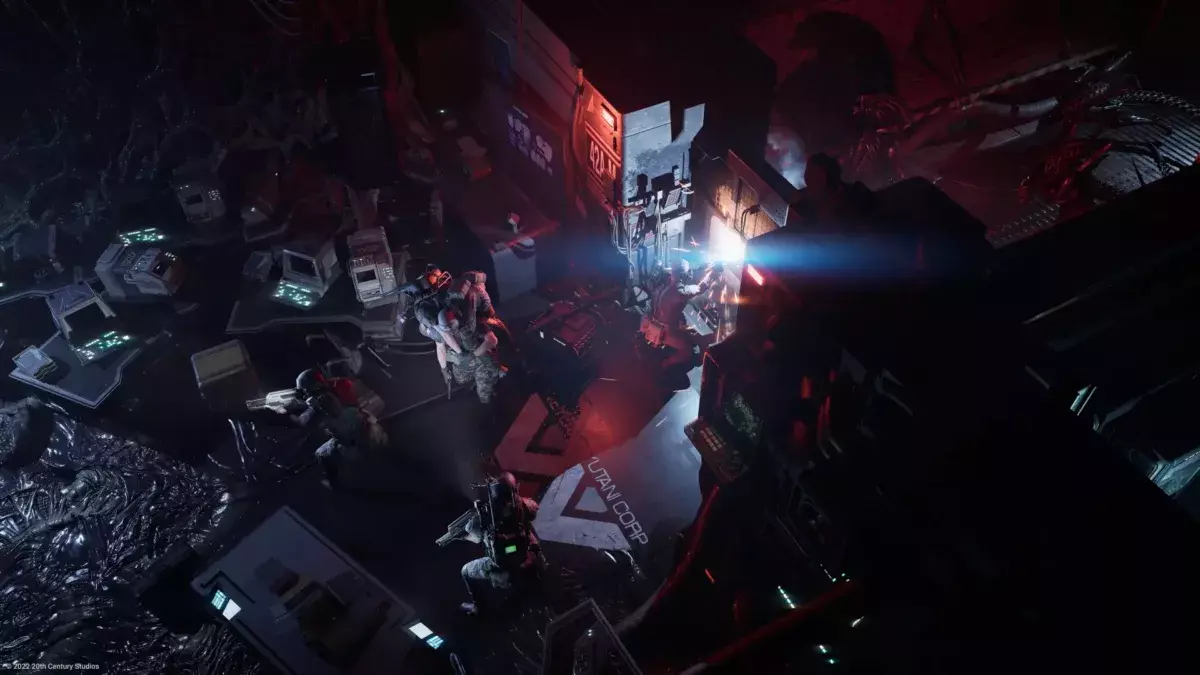
Credit: Tindalos Interactive/Focus Entertainment.
Almost FUBAR
It all feels fairly by the numbers, and yet there’s one thing in Dark Descent that keeps me coming back: resource management.
Each mission takes place in its own mini-sandbox, with numerous objectives which are sometimes linear, sometimes scattered about the map for you to choose between. Your handpicked squad will arrive on the map in an Armored Personnel Carrier (the big tank from Aliens), get out and trek towards the nearest yellow objective beacon.
Then, when things go wrong, the game becomes an engaging push-your-luck scenario. When ammo and med kits are running low, do you turn back then? If you’ve completed an objective at a heavy cost, do you leave, or push on? What about when one of your squad is knocked out? Abandon them, or take the heavy body back to the APC?
It is usually pretty frustrating when there’s a total party kill and you go back to your last autosave to replay the fight. But what I didn’t realise early on is that if you take one of your downed squadmates back to the APC, then progress without them, a total party kill will mean the vehicle goes back to the ship with whoever’s on board. By wanting to save one marine, I accidentally perma-deathed another three, and I found I didn’t even mind.
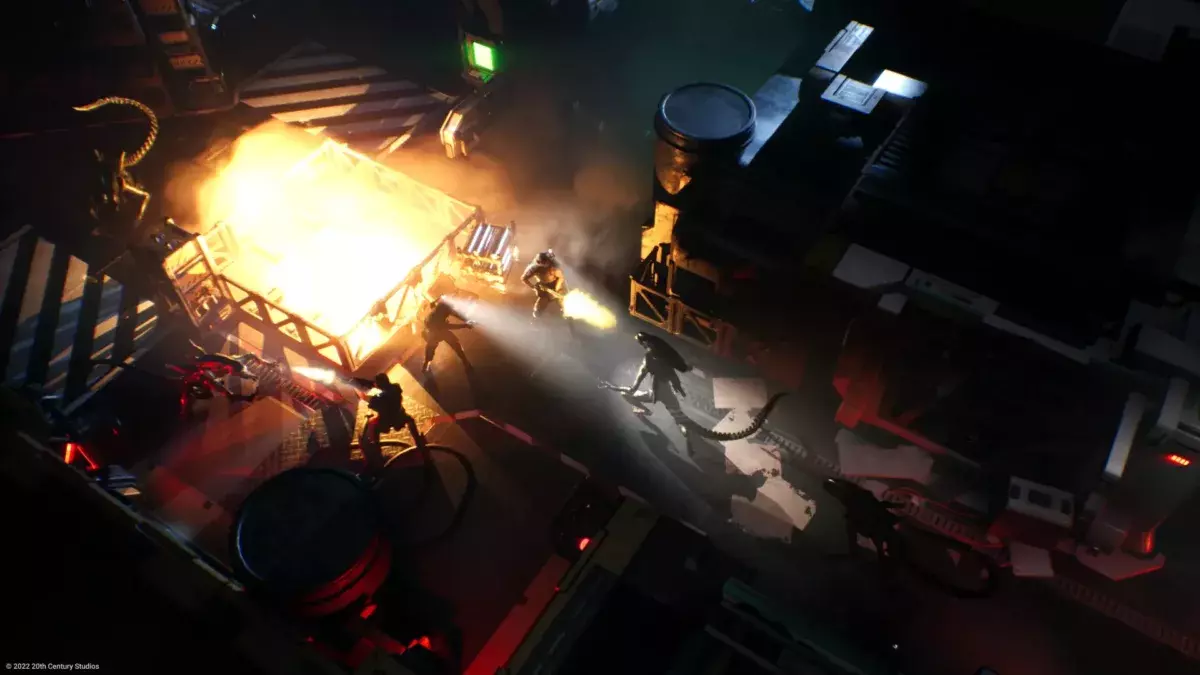
Credit: Tindalos Interactive/Focus Entertainment.
But running home comes at a cost too. You can only deploy a squad once a day. Every day that passes gives marines time to recuperate and gather resources in off-screen ‘expeditions’, but it is also a chance for the level of alien activity to increase, making your next deployment that much harder.
That combination of diminishing resources, mounting threats, and increasingly damaged troops does bring you closer to the sense of dread found in James Cameron’s Aliens.
Had Aliens: Dark Descent been backed up with sharper writing and a plot that doesn’t defang the best movie monsters in history, the game could have hit a lot closer to the mark.
Highlight:
When your marines make it back onto the APC, whether your mission was successful or not, the sense of relief is palpable.
Verdict: 65%
A serviceable, sporadically tense real-time tactics game that doesn’t quite make full use of its iconic Aliens licence.
Read more: Alien | Why the xenomorph is perfect for games, yet so hard to get right


